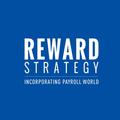The aftermath of Awful April
 Reward Strategy
Reward StrategyPay awards hold at 3% despite ’Awful April’ cost pressures

Despite a wave of cost increases that earned April the moniker "Awful April," UK pay settlements have maintained remarkable stability, with the median basic pay award holding firm at 3% through the end of April 2025. However, new data from Brightmine reveals a more nuanced picture beneath this figure, with significant implications for reward professionals navigating an increasingly complex economic landscape.
While the 3% median appears reassuring, almost half of all pay awards now fall below this benchmark, suggesting growing employer restraint despite some positive economic signals. The UK economy’s stronger-than-expected 0.7% growth in Q1 has yet to translate into more generous pay settlements, with businesses maintaining a cautious stance amid persistent cost pressures.
Sheila Attwood, HR Insights and Data Lead at Brightmine, highlights this tension: "April’s figures are critical in setting the tone for pay deals throughout the year. And while the latest economic data show signs of growth, the subdued pattern of pay settlements indicates that many employers continue to approach wage decisions with caution in the face of ongoing cost pressures that will continue into the second half of the year."
’Awful April’ Creates Perfect Storm of Pressures
The month brought a convergence of cost increases that hit both employers and employees simultaneously. Council tax hikes, utility bill increases, and changes to employers’ National Insurance contributions created a perfect storm of financial pressures. For reward professionals, this environment demands careful balancing of employee cost-of-living concerns against organisational budget constraints.
This cautious approach reflects broader economic uncertainty, with businesses seemingly unconvinced that Q1 growth represents sustained recovery rather than temporary reprieve from months of stagnation.
The traditional divide between public and private sector pay awards appears set to narrow significantly. Private sector awards currently sit at the 3% median, while public sector settlements remain higher at 5%. However, this public sector premium largely reflects legacy deals agreed earlier in the pay cycle rather than current market conditions.
Attwood anticipates convergence: "The data shows that while the public sector appears to be ahead on paper, this reflects past decisions rather than current trends. Looking ahead, we expect public sector pay awards to mirror the more restrained approach we are now seeing in the wider economy."
This shift represents a significant change from 2024’s higher public sector increases and suggests reward professionals across both sectors will face similar budgetary constraints in the coming months.
The broader economic picture reveals additional challenges for reward strategists, particularly in smaller organisations. Douglas Grant, Group CEO of Manx Financial Group, notes that "nearly a third of UK SMEs have already scaled back operations due to financial constraints," with 10% still struggling to secure financing.
This funding pressure creates a two-tier market where larger organisations may maintain competitive reward packages while SMEs face increasingly difficult choices between maintaining pay competitiveness and operational sustainability.
With Attwood warning that "our headline median could therefore fall in the months ahead," reward professionals should prepare for potential further moderation in pay budgets, particularly as more organisations opt for below-median increases. The disconnect between economic growth headlines and pay restraint also requires careful messaging to maintain employee engagement while managing expectations around reward increases.
The convergence of public and private sector pay approaches suggests it would be beneficial to focus on sector-neutral benchmarking rather than assuming historical differentials will persist. Larger organisations may gain competitive advantage through maintaining more generous reward packages while smaller employers face increasing constraints.
The combination of recession risks, inflationary pressures, and ongoing geopolitical tensions means the priority should be on flexibility and scenario planning over fixed annual budgets. This environment may favour more innovative reward approaches, including variable elements tied to business performance and non-monetary benefits that provide value without direct cost impact.
As the year progresses, the tension between maintaining competitive reward packages and managing cost pressures will likely intensify, making strategic reward planning more critical than ever for organisational success and employee retention.
Stay ahead of evolving pay trends and economic pressures at The Reward & Payroll Summit – early bird tickets £350 until June 13th. Share your innovative approaches to cost-effective reward strategies in the Rewards and Incentive Awards – free to enter until June 20th
